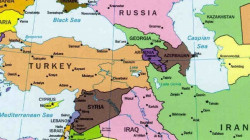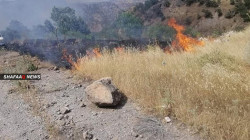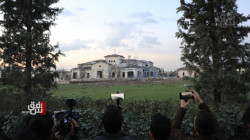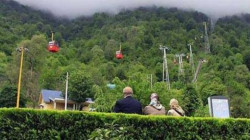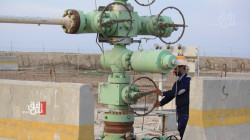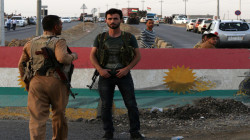Ankara'a anti-PKK operation and “Development Road” are two sides of the same coin: report
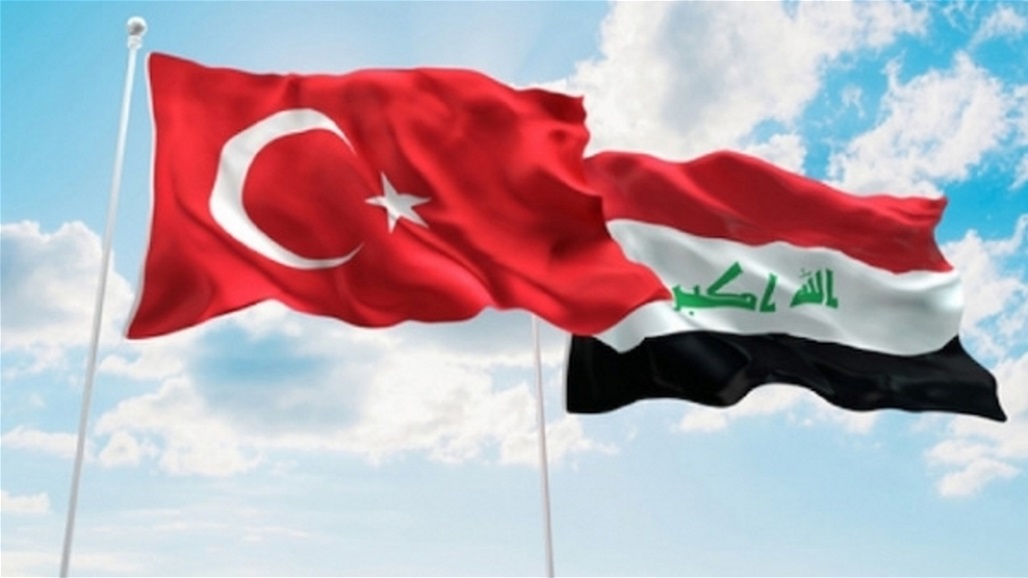
Shafaq News/Turkiye's intertwining of its mega project and its anti-PKK operation improves the chances of success for both elements. But this interconnection can be a double-edged sword—if one element fails, it may potentially hinder the success of the other.
Turkiye recently announced comprehensive military operation against the Kurdistan Workers Party (PKK) in the Kurdistan Region of Iraq (KRI)—which will be launched this summer, potentially in coordination with Baghdad—is not just about security. Ankara’s offensive will be part of a wider strategy, which heavily features the proposed “Development Road” connecting Turkiye and Iraq, to strengthen economic and political relations with Iraq’s central government. These efforts will counter growing Iranian hegemony in the region, particularly in the face of the looming U.S. withdrawal from Iraq, but Ankara will likely need to secure Iranian aquiescence to the two plans in order for either to be successful.
In Turkiye's relations with the Kurdistan Regional Government (KRG) and Iraq, security and economic considerations are the two most important issues. Since the 1990s, Ankara has established military bases for operations against the PKK in the Bahdinan region in Duhok and Erbil, where the Kurdistan Democratic Party (KDP), led by Masoud Barzani, has full control. Until 2016, the military operations in the KRI were mostly short term and Ankara did not aim to establish permanent bases there. But after the KRI’s ill-fated independence referendum on September 25, 2017 and the Trump administration’s announcement of a U.S. troop withdrawal from Syria, the Turkish military operations in Erbil and Duhok increased. In 2018, it began to establish permanent bases there, especially as the strategy of targeting the threat at its source proved effective.
Ankara’s plans have a territorial component; Turkish president President Recep Tayyip Erdogan has pledged to create a “30-to 40-kilometer security corridor across the country’s border with Iraq and Syria.” As such, Ankara’s summer operation aims to achieve full control along Turkiye's border with Iraq. These efforts also represent the latest attempt to open a new border crossing with Iraq in Ovakoy in the Turkiye-Iraq-Syria triangle, an effort to bypass the KRI, which makes up the entirety of its current border with Iraq.
To prepare for an effective assault against the PKK, Ankara has engaged in intensive diplomacy with the KRG, the Iraqi central government, and the commanders of Iran-backed Shia paramilitary groups, especially since 2021. In Baghdad, these efforts have recently borne fruit; following the recent visit to Baghdad by Turkish foreign minister Hakan Fidan, Iraq issued a joint statement with Turkey labeling the PKK a “banned” organization and a “security threat” to both countries, which Ankara viewed as a great success. Prior to this change in Iraq’s stance, Baghdad had long criticized Turkiye's anti-PKK operations in the country.
Now that Ankara has Baghdad’s tacit blessing, it will likely focus its operation against the PKK in the Gare region, located in Duhok. The operation’s most important aim is to ensure the security of the development road, which will pass through Mosul, located almost 30 km from Gare. Ankara is especially concerned that the PKK’s presence in Sinjar—west of Mosul—may interrupt the project, and thus its operation in the KRI is directly connected to the Mosul plain and the Development Road.
In addition, as per the joint statement, Baghdad and Ankara decided to establish joint standing committees to work on counterterrorism, trade, agriculture, energy, water, health, and transportation. Ankara has not yet been able to reach a security agreement with Baghdad along the model of the agreement Iraq signed last year with Iran to work against all armed Iranian Kurdish opposition groups in the KRI. Even so, Turkiye believes that it will gradually gain benefits from economic cooperation with Baghdad and joint diplomatic pressure to counter the PKK. Moreover, some believe that President Erdogan’s visit to Iraq this April is likely to pave the way for such a deal, which would include a joint operations center.
Ankara is also seeking to move forward the Development Road project with Iraq in an effort to achieve a direct territorial connection between the two countries. The the development road project will require an estimated $17 billion in foreign investment and pass through Basra, Diwaniyah, Najaf, Karbala, Baghdad, and Mosul—connecting Baghdad and Ankara through a land corridor and offering economic opportunities for both sides. Turkish officials say that if the corridor is opened, Erbil, Mosul, Kirkuk, and Baghdad will be jointly rebuilt in the process.
Implementing this project and opening the corridor will likewise cut off territory between Iraqi and Syrian Kurds. Turkiye has repeatedly stated that it wants to cut off the PKK’s Iraqi passage to Syria by opening Ovakoy. In addition, Ankara wants to reach the Sunni and Turkmen regions in northern Iraq, such as Mosul, where Turkiye's Bashiqa military base is located, and Kirkuk, where the majority of Turkmens live. With this project, Turkiye can establish a direct connection with Turkmens and Sunni Arabs to achieve further political influence in these communities through economic relations.
Although Turkiye says that corridor security will be provided by KRG security entities as well as the Iraqi central government, the extent of the KRI’s role in the corridor is not clear. Because this road is designed to bypass the KRI and cut off the land connection of PKK-affiliated forces that control both sides of the Iraqi-Syrian border, it has a significant security dimension for Turkiye in and of itself, as well as potential risks for the KRG.
The Development Road, which connects Basra to Baghdad and Mosul, will completely bypass the KRI before crossing the Turkish border. According to Iraqi spokesman Basem al-Awadi, topographic and economic factors determined this decision. On the other hand, the KRG’s prime minister, Masrour Barzani, has emphasized that Erbil should be “included” and that its “consent” should be required for the Development Road. It is worth noting that the Erbil administration has been in a weak position for political, security, and economic reasons since the 2017 referendum and has been making major concessions to Baghdad.
One other actor that Ankara must address is Iraq’s highly involved neighbor. In contrast to Iran’s view that the United States’ presence in Iraq is a direct threat, Ankara’s desire to spread its influence from Bahdinan to Mosul-Kirkuk-Sulaymaniyah does not seem to be as pressing an issue for Tehran. Nevertheless, since Iran sees Turkey as a regional rival, it must be convinced about the Development Road in order for Ankara to succeed. Instead, Iran may forcibly reject greater Turkish military and political presence in its strategic corridor—passing through Iran’s Shia Crescent from Sulaymaniyah-Kirkuk-Mosul to Syria, which links Tehran with Damascus and Beirut. In the meantime, tensions have been simmering between Turkiye and the Patriotic Union of Kurdistan (PUK), based in Sulaymaniyah and with ties to Iran, demonstrating the potential for the projects to derail if Ankara is unable to secure Iran’s tacit approval of its efforts.
Ankara now openly states that it regards the PUK as a “national threat.” And recently, a Turkish report claimed that the PKK has acquired kamikaze drones made in China or Iran through the PUK. Many also suspect that Iran has intervened in favor of the PUK and against the KDP over the past few years through federal court decisions in Baghdad. The court’s recent decision to eliminate eleven minority quotas in the KRI Parliament following a PUK lawsuit, and the KDP’s boycott of parliamentary elections scheduled to be held in the KRG in June, indicate that several shifts are taking place: The KDP is losing its ability to hold a majority in the Parliament, and the PUK is potentially changing the balance of power and pushing for the presidency and premiership, which the KDP has consistently controlled until now.
The KDP’s loss of power in the KRG or its withdrawal from the federal government in Baghdad will negatively affect Turkiye's regional plans and benefit Tehran. Ankara has relied on its relatively cordial relations with the KDP in its past operations inside KRI territory, and sought to benefit from this relationship in the broader Iraqi political arena. While these intra-Kurdish and Erbil-Baghdad tensions are not explicilty related to Ankara'a efforts, they are having an impact on its calculus.
Turkiye is not seeking to isolate Iran from its planned Development Road project. In fact, Turkish foreign minister Fidan has explicitly stated that his country wishes to involve Iran. Turkiye recognizes the reality that Iran and Iran-backed Shiite militias are present in Iraq, particularly in Kirkuk, Mosul, and Sinjar, and especially since the 2017 independence referendum.
Ankara appears ready to cooperate with Iran and Iran-backed Shiite groups at the expense of its national security, providing them with a direct land connection to Iraq’s central government and cutting off the Kurdish passage between Iraqi and Syria. Depending on what Ankara offers to Baghdad and Tehran, and especially how Iran feels about the benefits, this project might sound like a win-win policy.
Ankara's intertwining of its mega project and its anti-PKK operation improves the chances of success for both elements. But this interconnection can be a double-edged sword—if one element fails, it may potentially hinder the success of the other. Erdoğan visit to Baghdad on Sept 2023 was postponed due to disagreement between Ankara and Baghdad over water, oil export and security issues. Whether Erdogan re-postpones his April visit to Iraq, and the concrete results of the visit if it takes place, will determine whether both succeed.
(By Idris Okuducu for the Washington Institute)
